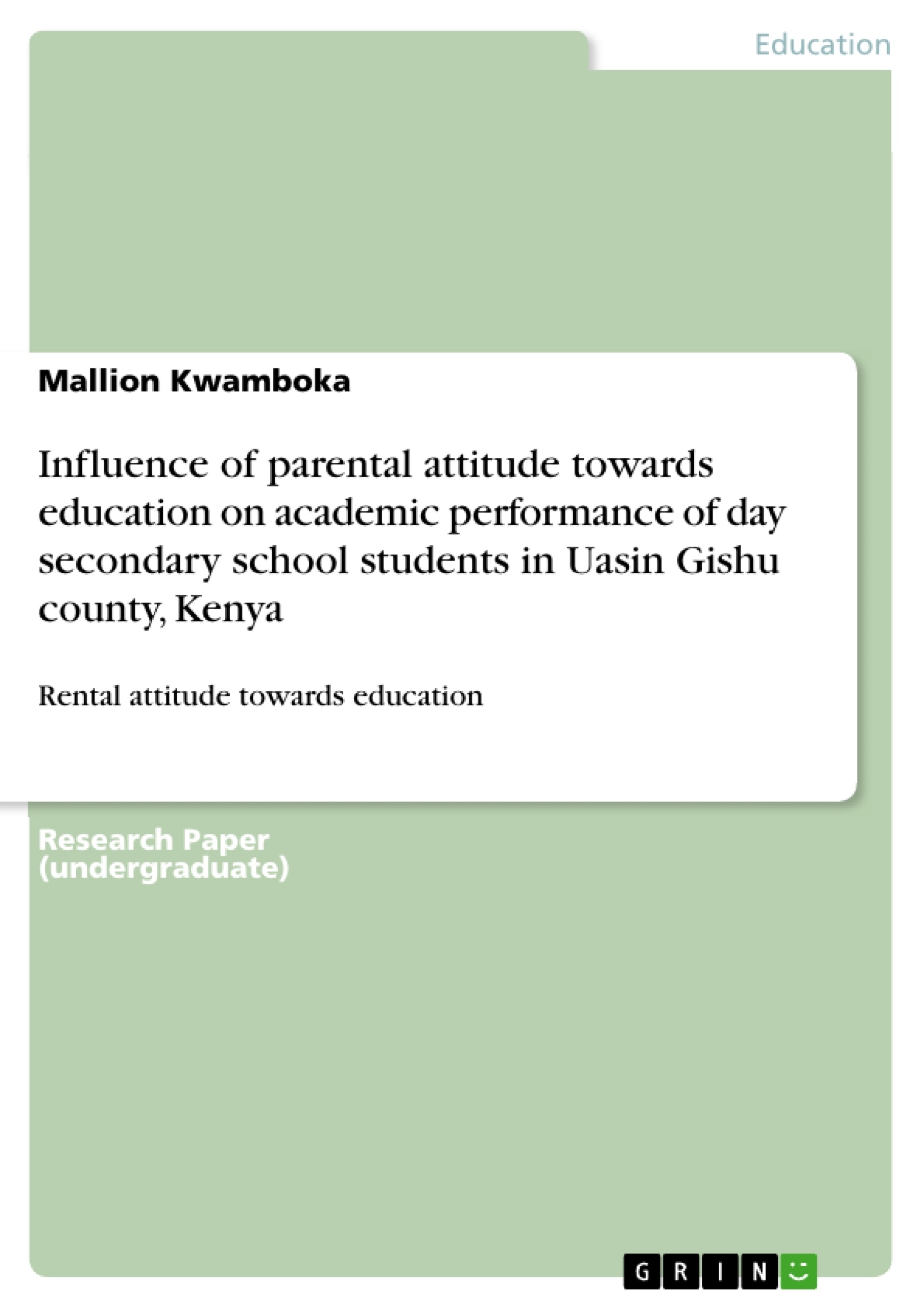Parental attitude towards education is consistently found to be positively associated with a student's academic performance. However, there has been little investigation about mechanisms that explain this association. The objective of the study was to establish the relationship between parental attitude towards education and academic performance of day secondary students. The specific research objectives were: to establish the relationship between parents’ attitude towards educational involvement and academic performance of day secondary school students; to examine the relationship between parents’ attitude towards absenteeism and academic performance of day secondary school students; to establish the relationship between parents’ attitude towards provision of basic educational needs and academic performance of day secondary students in Uasin Gishu. The theoretical framework of this study was derived from functionalist and learning theories. The Data for this study was collected from primary and secondary sources. The research instruments were questionnaires for students and parents, interview schedules for parents and teachers and parent-child relationship scale for students. The study population comprised of 1804 students, 80 parents representatives and 51 teachers. A correlation research design was adopted based on a sample drawn from five secondary schools in the study area. Purposive sampling was used to select a sample 18 teachers and 36 parents while stratified random sampling was used in the selection of 180 students. Spearman Brown Prophesy coefficient formula was used to test the internal consistency of questionnaires and interview schedules after piloting had been done. Parent-child relationship scale reliability was established by use of Cronbach’s alpha coefficients. The reliability coefficients of 0.70 at 0.05 level of significance were obtained. Data collected was analyzed using descriptive and inferential statistical analysis. Inferential statistics. Descriptive statistics such as frequency, means and percentages were used in analyzing data. The findings of the study show that parental attitude towards education affects academic performance of day secondary school students in Uasin Gishu. The study concluded and recommended that school administrators and policy makers find ways of enhancing parental involvement towards education.
Table of Contents
ABSTRACT
INTRODUCTION
STATEMENT OF PROBLEM
PURPOSE OF THE STUDY
RESEARCH METHODOLOGY
RESULTS AND DISCUSSION OF RESEARCH FINDINGS
CONCLUSIONS
REFERENCES



